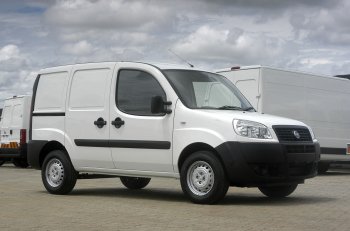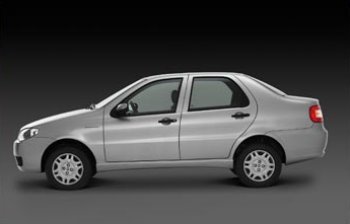|
Italian daily
newspaper Il Giornale last week suggested that Fiat
is set to take a controlling interest in Tofaş, its
Turkish-based auto manufacturing joint venture, although
Fiat was very swift to deny that there was any truth in the
report. A single-sentence statement issued in Turin by the
Fiat Group - just hours after Il Giornale hit the
newsstands - read: “The news published today on an
Italian newspaper concerning Fiat’s intention to acquire a
controlling interest in the Turkish company Tofaş is a
baseless rumour."
Tofaş is a joint manufacturing venture between Fiat and Koç
Holdings, Turkey's leading conglomerate, which assembles the
Palio, Albea and Doblò models. Tofaş is very rapidly growing
in importance within Fiat's future planning strategy and its
CEO Alfredo Altavilla is one of Fiat CEO Sergio Marchionne's
key senior management team members, and a central figure in
developing new industrial alliances for the Group. Tofaş
carries out the sole assembly for the Doblò light commercial
vehicle range, and is currently developing two new models
for Fiat: a new low-cost saloon (codenamed "D200"); and a
new small commercial van (codenamed, "Minicargo") which is
being developed in conjunction with PSA Peugeot-Citroën.
Established in 1926, Koç Holding operates in the automotive,
durable goods, food, retailing, energy, financial services,
tourism, construction and IT industries. The shares of the
22 Koç Group companies are traded on the İstanbul Stock
Exchange and the Group has consolidated 118 companies,
87,000 employees and 12,000 dealers as well as agencies and
after-sales services. Koç Group operates having in mind
international standards in the areas of corporate
governance, corporate social responsibility, environmental
protection, customer satisfaction and human resources. Il
Giornale suggested last week that a complex transaction
could see the Agnelli family's investment vehicle, IFIL,
involved in the manoeuvring which could cost around 700
million euros. The newspaper also reckoned that two banks -
PNP Paribas and Mediobanca - were both advising on the deal
which could see Tofaş become Fiat's main strategic 'gateway'
to the Asian region.
TOFAŞ
One of the
greatest dreams that Vehbi Koç had in his life was to build
an automobile factory in Turkey. Realizing this dream in the
year 1968, he set up the Turkish Automotive Factory Inc.,
TOFAŞ in short. The foundations of the Turkish automotive
industry were laid with this large project. Today, Tofaş
still retains its quality as being one of the flagship
organizations not only in the Turkish Automotive Industry
but also in the Turkish economy. It produces vehicles for
both the home market and many countries around the world.
The foundations of the factory, of which the headquarters
are in Istanbul, were laid on 13 April 1969 and production
got underway on 12 February 1971.
|
 |
|
Tofaş is the sole manufacturing base for the Doblò
light commercial vehicle range, a highly successful
low-cost van that leads the domestic market in its
segment and is very popular around Western Europe. |
|
|
 |
|
Tofaş - the Fiat joint venture company - assembles
the Fiat Albea saloon in Turkey and also exports the
model in CKD kit form. |
|
|
The area of the
factory was 735,170 square meters with 61,848 square meters
being enclosed space. Now, following a continuous increase
in investment it amounts to 1 million square meters, of
which 350.000 square meters is enclosed space. Founded in
the first place for producing 20,000 cars, Tofaş has grown
by taking into consideration the continuously expanding home
market and the export potential. As a result, it has become
a modern enterprise which has the economic scale for
producing 250,000 cars a year today.
Starting its
serial production with the model 124 following its
foundation, Tofaş launched the production series 131, and
later on Tempra simultaneously with Fiat Auto. These models
were followed relatively by the Tipo and Uno. Today Tofaş
still produces the Palio, Albea and Doblò. The headcount of
workers, technicians and engineers, which was 1,000 at the
beginning has today come close to 5,000 with the rising
capacity.
Having made
‘quality’ a philosophy of life from design to the materials
used, from production to after-sales support, Tofaş marked a
first in its industry by obtaining the ISO 14001
Environmental Management System Certificate in November 1998
following the work it initiated to that effect. In January,
2002 it was entitled for the second time to obtain the ISO
14001 Certificate. Having made an investment of 10 million
dollars for the protection of the environment since the year
1990, Tofaş pays attention to using materials that do not
lead to environmental pollution in the cars that it
produces. In all Tofaş models, the catalytic converter
system is used for preventing the waste gases from creating
air pollution. It has also fulfilled long ago many other new
rules of the European concerning air pollution. 95% of the
waste created during production is recycled. The other waste
that cannot be recycled is rendered harmless in accordance
with the legislation. Tofaş adopted the norm Euro 3, which
includes the new rates of European Union concerning
emission, in all its products as of the beginning of the
year 2001.
Like all the
other leading automotive organizations of the world, Tofaş
also dedicates special attention to the motor sports. Being
initiated into the racing arena in 1970s, Tofaş brought
about a fresh excitement to the race circuits with the Uno
Cup which it organized in the year 1993. This adventure
continued with Tipo Cup and Palio Cup. It obtained the title
of Turkish Champion of Brands with the Fiat Palio Kit Car,
the first rally car in Turkey, by competing in the
categories of Rally, Rally Cross, Circuit and Escalation in
the years 2001 and 2002. It's rally success is unbroken up
to 2006.
|
|
|
|